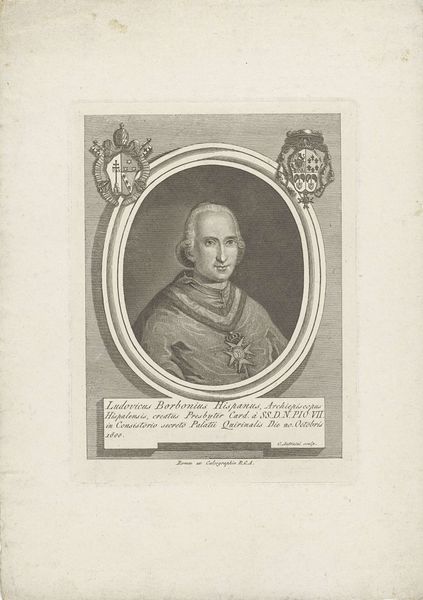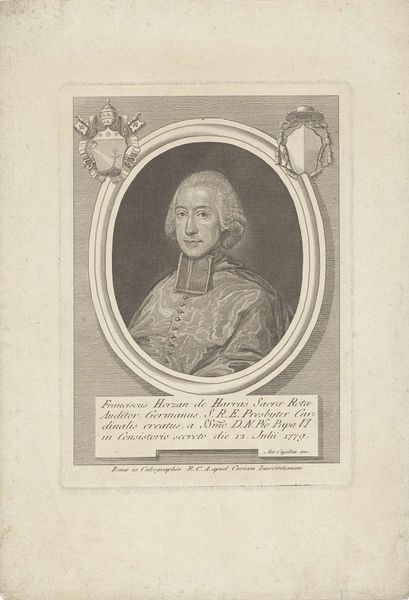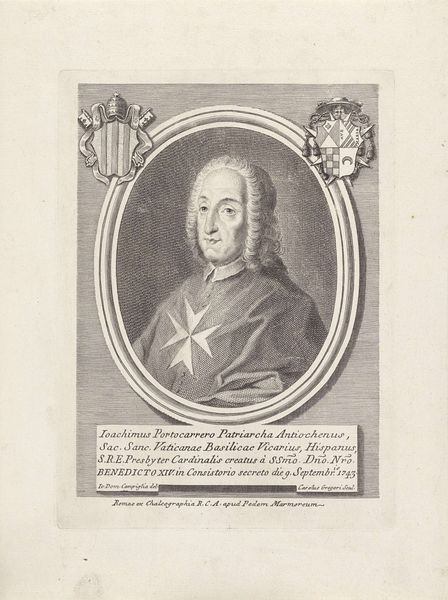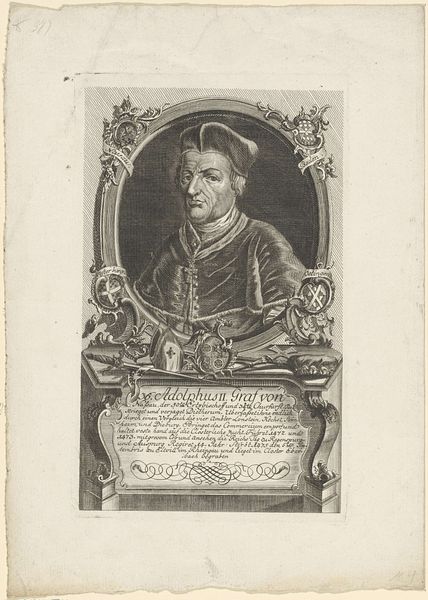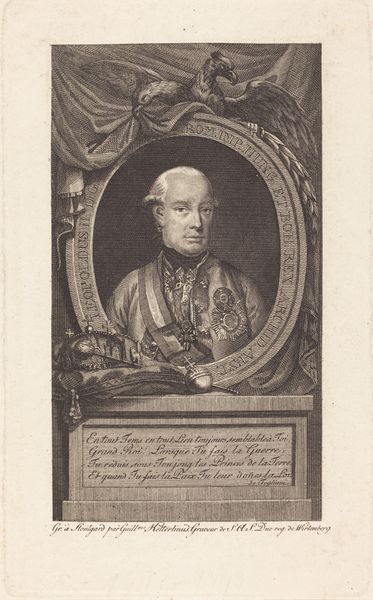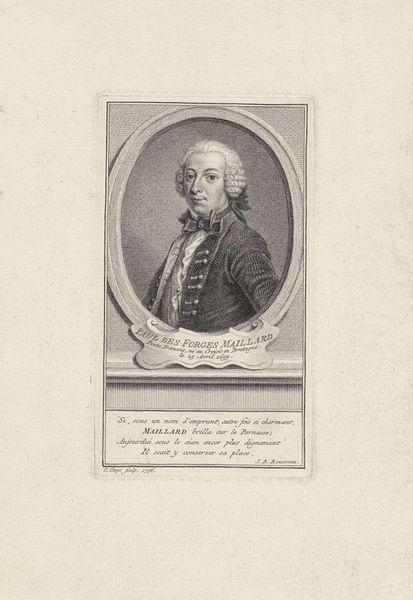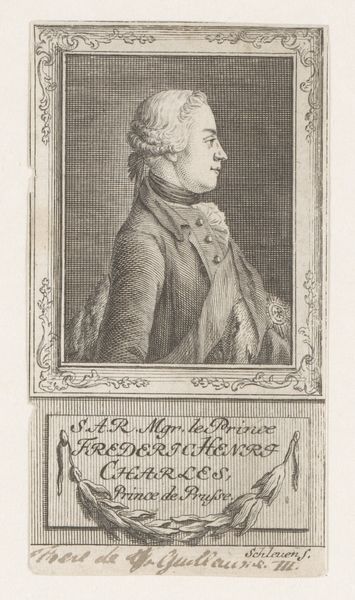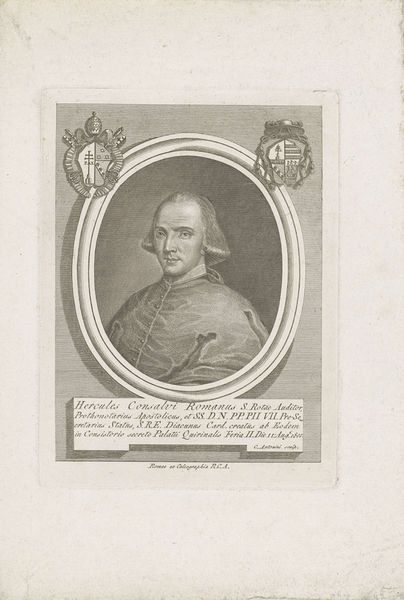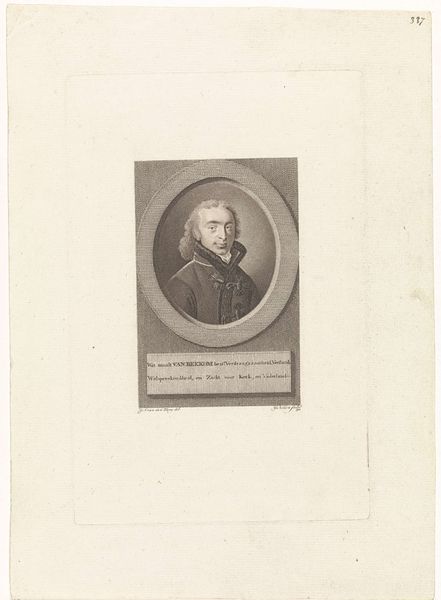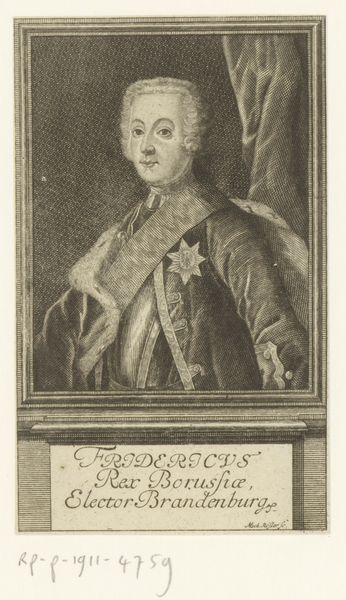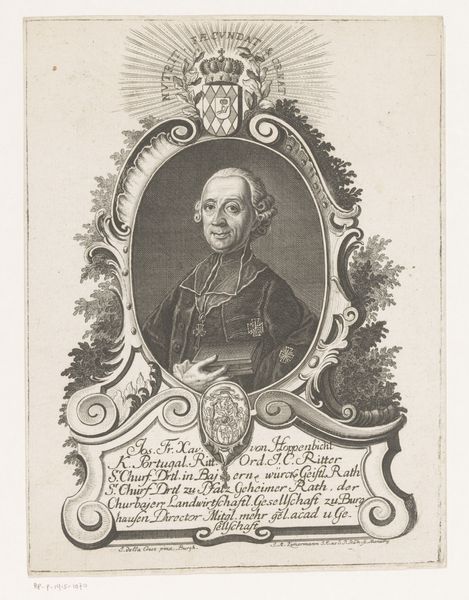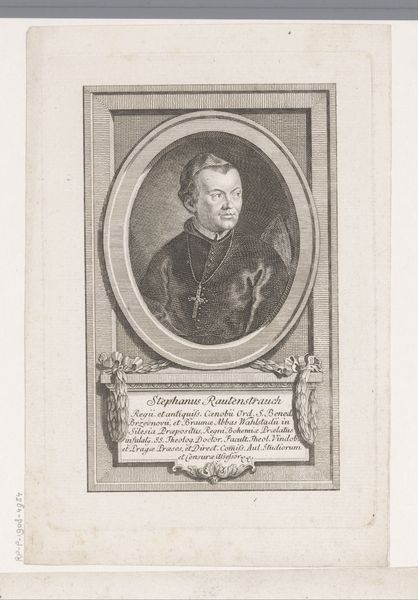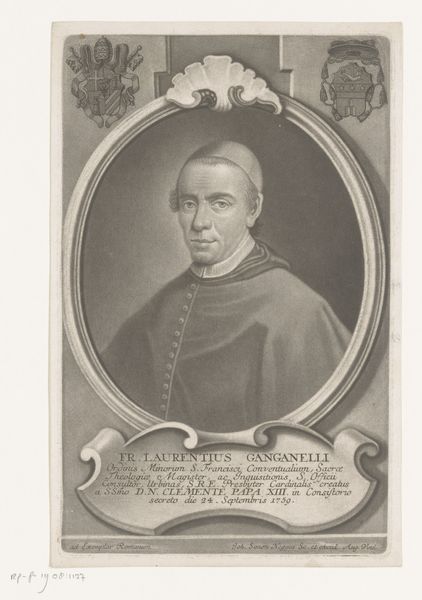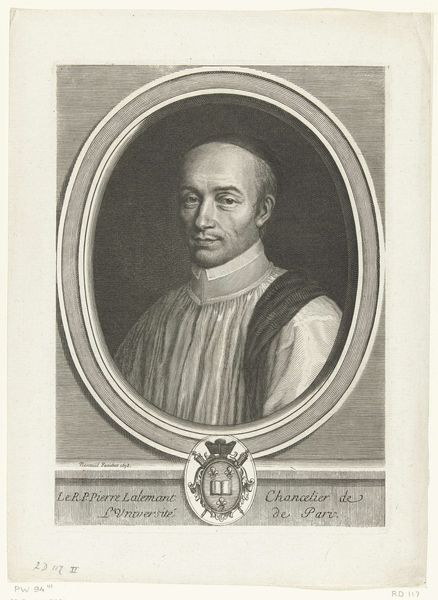
#
pencil drawn
#
aged paper
#
toned paper
#
light pencil work
#
photo restoration
#
old engraving style
#
personal sketchbook
#
old-timey
#
19th century
#
golden font
Dimensions: height 227 mm, width 166 mm
Copyright: Rijks Museum: Open Domain
This print of Cardinal Carlo Giuseppe Filippa della Martiniana was made by Antonio Capellan in the late 18th century. It's an engraving, meaning the image was incised into a metal plate, likely copper, with tools called burins and scrapers. Ink would have been applied to the plate, then wiped off the surface, remaining only in the etched lines. The plate was then pressed onto paper, transferring the image. The meticulous cross-hatching and fine lines create subtle tonal variations, giving the portrait depth and realism. This was painstaking work requiring great skill and control, a real demonstration of craft. Prints like this one played a vital role in disseminating images and information in the 1700s. They allowed for the reproduction and distribution of portraits to a wider audience. Understanding the labor and skill involved in this method underscores the value placed on craftsmanship and artistry in a pre-digital era. It's a reminder of the labor involved in image-making before photography, and the complex relationship between art, craft, and social communication.
Comments
No comments
Be the first to comment and join the conversation on the ultimate creative platform.
